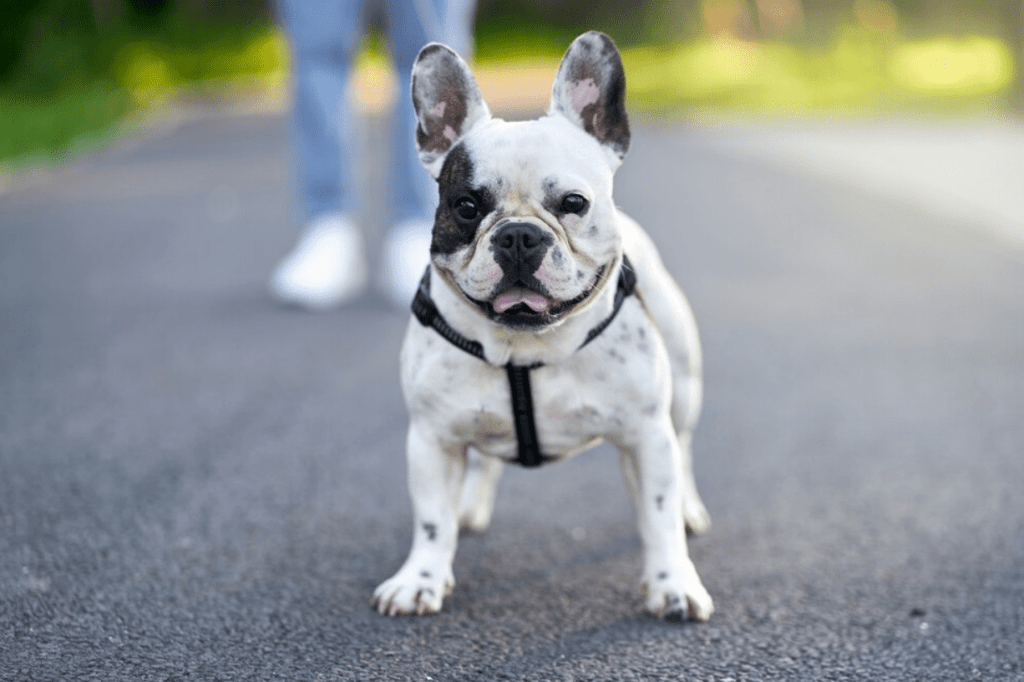If you’ve ever encountered bulldogs, you know they come in all shapes and sizes, but one thing seems to linger in the air: Are bulldogs dangerous? With their wrinkled faces and muscular build, these lovable companions often get a bad rap for being aggressive. But is there truth behind the myth, or are misconceptions fueling anxiety?
Like any other dog breed, Bulldogs can show aggressive conduct but are not inherently more dangerous than other breeds. Historically, bulldogs were bred for bull-baiting, which required a certain level of aggression towards bulls. However, over time, their temperament has been selectively bred to be more gentle and loyal, especially since they transitioned to being companion animals.

Are Bulldogs Truly Dangerous Dogs
Let’s disprove the stigma surrounding bulldogs and their scented danger. While some may associate them with aggression, bulldogs are known for their friendly and laid-back behaviour.
These wrinkly-faced pups have a sweet temperament that often surprises those who judge them based on appearance alone. Bulldogs are loyal companions who adore human interaction, making them great family pets.
Their gentle nature and love for snuggles make them beautiful additions to households of all sizes. Despite their muscular build, they are not typically aggressive unless provoked or poorly trained.
Understanding that any dog’s manners are influenced by socialisation, training, and environment rather than breed alone is essential. With proper care and attention, bulldogs can thrive in loving homes where they receive the respect and care they deserve
The Real Story Behind Bulldog Temperament and Safety
With their wrinkled faces and sturdy build, Bulldogs often get a bad rap regarding temperament. Contrary to popular belief, Bulldogs are known for their gentle and caring nature.
They are loyal friends, human interaction, and love being part of a family. While their muscular appearance may intimidate, Bulldogs are pretty docile and friendly towards people, including children.
Like any breed, proper socialisation from an early age is critical in shaping their conduct. With constant training and positive reinforcement, Bulldogs can be well-behaved pets that bring joy to their owners.
Regarding safety concerns, it’s essential to understand that aggression in Bulldogs is not shared. As with any dog, individual temperament can vary based on genetics and upbringing. Responsible ownership is crucial in ensuring that Bulldogs remain happy and well-adjusted members of society.
Separating Fact from Fiction on Their Danger Leve
There often needs to be more clarity about bulldogs’ temperament and safety. Some may believe bulldogs are inherently dangerous due to their muscular build and strong jaws. Bulldogs are known for being loyal and loving companions.
Temperament: Bulldogs generally have a calm and affectionate temperament. They are known for being gentle, loyal, and good-natured companions. However, like any dog breed, individual temperament can change, and proper socialisation and training are necessary to ensure positive behaviour.
Aggression: While bulldogs were historically bred for bull-baiting, modern breeding practices have focused on tempering aggression and promoting sociability. Aggression in bulldogs is not characteristic of the breed and is typically a result of inadequate training, socialisation, or environmental factors.
Bite Force: Despite their strong jaws and muscular build, bulldogs do not possess an exceptionally high bite force compared to other breeds. While they may have been used for bull-baiting, this historical function does not equate to an inherent danger in domestic settings.
Safety with Children: Bulldogs are often considered excellent family pets and can be very gentle with children. However, supervision is always recommended when dogs are interacting with young children to prevent accidents or misunderstandings.
With the proper guidance and care, bulldogs can thrive in a family setting without posing any significant danger. It’s crucial not to generalise an entire breed based on isolated incidents or stereotypes.

Understanding Their Nature and Potential Risks
When understanding Bulldogs’ nature and potential risks, it’s essential to consider their background. Bulldogs were originally bred for bull-baiting, which required them to be tenacious and strong-willed. This history can sometimes result in a stubborn streak in specific individuals.
Yet, modern breeding practices have shifted towards producing more docile and friendly bulldogs suitable as family pets. Like any breed, temperament can vary greatly depending on socialisation, training, and genetics.
Prospective bulldog owners must research and understand their responsibilities as owners of this breed. Proper training and early socialisation are essential to handling any potential risks related to Bulldogs.
Educating ourselves about their nature and taking necessary protection ensures a safe and pleasant relationship with our beloved four-legged companions.
Assessing the Safety of Bulldogs as Pets in Today’s Society
As we have delved into whether Bulldogs are dangerous, it’s clear that they have been unfairly characterised in some instances. While any dog has the potential to exhibit aggression under certain events, Bulldogs are generally known for their gentle and affectionate nature.
When considering the safety of Bulldogs as pets in today’s society, individual temperament, proper training, socialisation, and responsible ownership are essential. With the appropriate care and attention, Bulldogs can make excellent companions for families and individuals.
Like any pet or animal companion, understanding and respect are key when welcoming a Bulldog into your home. By debunking myths and misconceptions surrounding their temperament and behaviour, we can appreciate these lovable, wrinkly faces who are loyal friends with a lot of love to give.


